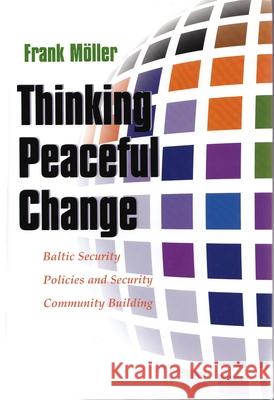Thinking Peaceful Change: Baltic Security Policies and Security Community Building » książka
Thinking Peaceful Change: Baltic Security Policies and Security Community Building
ISBN-13: 9780815631088 / Angielski / Twarda / 2007 / 379 str.
Frank Moller explores why the Baltic states of Estonia, Latvia, and Lithuania have not evolved into a security community despite the area undergoing, since the mid 1980s, considerable change with little turmoil. This book focuses on the tensions resulting from policies in the Baltic states aiming at an increase in both security and sovereignty. Moller shows how these states' attempts at increasing their security were intricately bound up with their efforts at autonomous nation-state building. Moller argues that a primary obstacle to security community building was the construction of nation-states based upon an exceedingly traditional template emphasizing the connection between the state, sovereignty, and military security. One complicating factor, he demonstrates, is that as the Baltic states aspired to NATO membership, unique challenges prevail, for example, a perceived threat of looming Russian imperialism and the perseverance of a collective memory emphasizing anti-Soviet resistance. Moller also examines such key issues as the demise of the Soviet Union, the nonviolent withdrawal of Russian troops from the Baltic States, and U.S. foreign policy in northern Europe. Here is a profound, multifaceted look at issues of security in the contemporary world - a crucial tool for researchers and students of peace and conflict studies.











